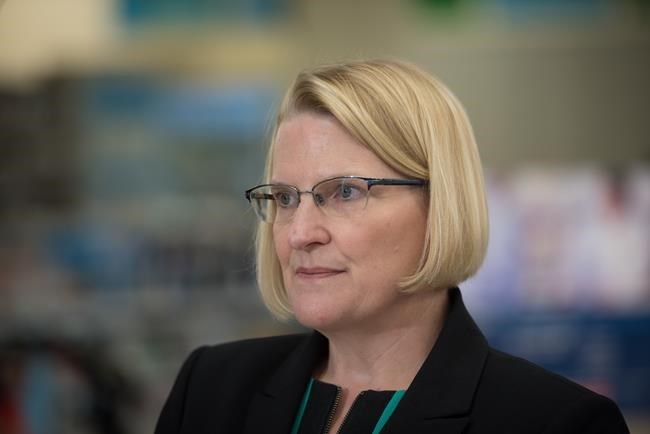TORONTO — Ontario has passed a health-reform bill that will allow more private clinics to offer certain publicly-funded surgeries and procedures in an effort to cut long wait lists for care.
Cataract surgeries and diagnostic imaging and testing will be expanded while the government will create an entirely new system to perform hip- and knee-replacement surgeries.
The moves are part of the government’s plan to decrease wait times and reduce a massive backlog of surgeries, which stands at more than 200,000 procedures.
"We're going to shorten the list, we're going to give people the care they need in a rapid fashion," Premier Doug Ford said at question period Monday just before the bill passed.
There are already about 900 private clinics currently operating across the province, the vast majority of them for diagnostic imaging and testing.
The province has not said who will regulate or inspect the new clinics.
Hospitals have said they are concerned about losing staff to private clinics. The province has said new clinics must apply for a licence to operate and show detailed staffing plans "to protect the stability of doctors, nurses and other health-care workers at public hospitals" as part of their applications.
Last summer, hospital emergency departments across the province had to close for hours, days or weeks at a time. Hospital officials blamed the closures on a severe shortage of nurses.
In the fall, the four major pediatric hospitals in Ontario had to cancel surgeries in order to shuffle health-care workers to intensive care units and emergency departments that were dealing with a massive influx of really sick children, mostly due to a bad flu and respiratory syncytial virus, or RSV, season.
About 12,000 children are part of Ontario's surgical backlog. None of the measures in the new bill are directed at pediatric care.
Bill 60, titled the Your Health Act, has drawn criticism from opposition parties and health-care workers.
The Ontario Nurses' Association said the province should invest in hospitals to perform more surgeries rather than set up a new system.
President Erin Ariss said the union, which represents some 68,000 nurses across the province, laid out its concerns at a committee studying the bill.
"This government chooses to ignore nurses, which our public health-care system heavily relies on," Ariss said. "Bill 60 draws fed up staff out of our public system and exacerbates the staffing issues already faced by our public hospitals."
New Democrat Leader Marit Stiles said the legislation will create longer wait times, leave emergency departments shuttered and increase exhaustion for already-stressed health-care workers.
"That is not the health-care system that I think Ontarians need or deserve or want," she said.
She also warned of clinics possibly "upselling" patients by pressuring them to choose a service or product that costs more than what the Ontario Health Insurance Plan covers.
Adil Shamji, the Liberal health critic, said there is a role for diagnostic services and surgeries to be done outside of hospitals.
"But it needs to be done in the right way," he said. "It needs to be not-for-profit, hospital-affiliated with credible protections to prevent siphoning of health-care workers and staff."
The Ontario Medical Association had proposed a similar system to deal with the surgical backlog, but wanted the private clinics to operate as non-profits.
The OMA's new president, Dr. Andrew Park, said Monday that the profit versus non-profit model is "more of a minor issue."
"Accessibility is the most important issue," Park said in an interview.
Many details of the new system will not be revealed until the government proposes regulatory changes.
Park said the province's doctors will have a seat at the table helping develop those regulations to ensure they are crafted properly.
"We have to hold true to those major principles within the Canada Health Act and ensure that we don't adversely affect in any way the equitability of access that currently exists," he said.
This report by The Canadian Press was first published May 8, 2023.
Liam Casey, The Canadian Press

